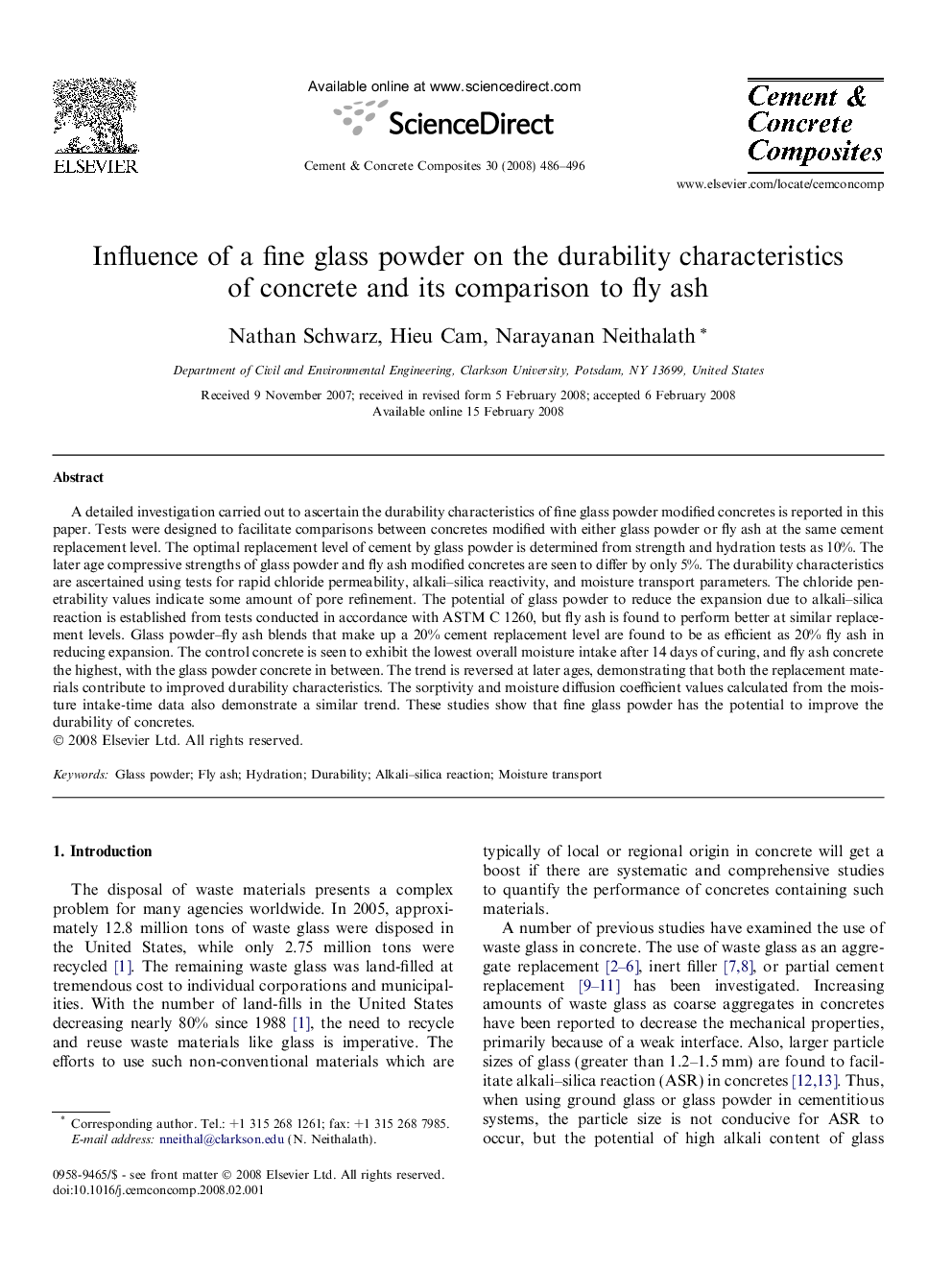| Article ID | Journal | Published Year | Pages | File Type |
|---|---|---|---|---|
| 1455629 | Cement and Concrete Composites | 2008 | 11 Pages |
A detailed investigation carried out to ascertain the durability characteristics of fine glass powder modified concretes is reported in this paper. Tests were designed to facilitate comparisons between concretes modified with either glass powder or fly ash at the same cement replacement level. The optimal replacement level of cement by glass powder is determined from strength and hydration tests as 10%. The later age compressive strengths of glass powder and fly ash modified concretes are seen to differ by only 5%. The durability characteristics are ascertained using tests for rapid chloride permeability, alkali–silica reactivity, and moisture transport parameters. The chloride penetrability values indicate some amount of pore refinement. The potential of glass powder to reduce the expansion due to alkali–silica reaction is established from tests conducted in accordance with ASTM C 1260, but fly ash is found to perform better at similar replacement levels. Glass powder–fly ash blends that make up a 20% cement replacement level are found to be as efficient as 20% fly ash in reducing expansion. The control concrete is seen to exhibit the lowest overall moisture intake after 14 days of curing, and fly ash concrete the highest, with the glass powder concrete in between. The trend is reversed at later ages, demonstrating that both the replacement materials contribute to improved durability characteristics. The sorptivity and moisture diffusion coefficient values calculated from the moisture intake-time data also demonstrate a similar trend. These studies show that fine glass powder has the potential to improve the durability of concretes.
